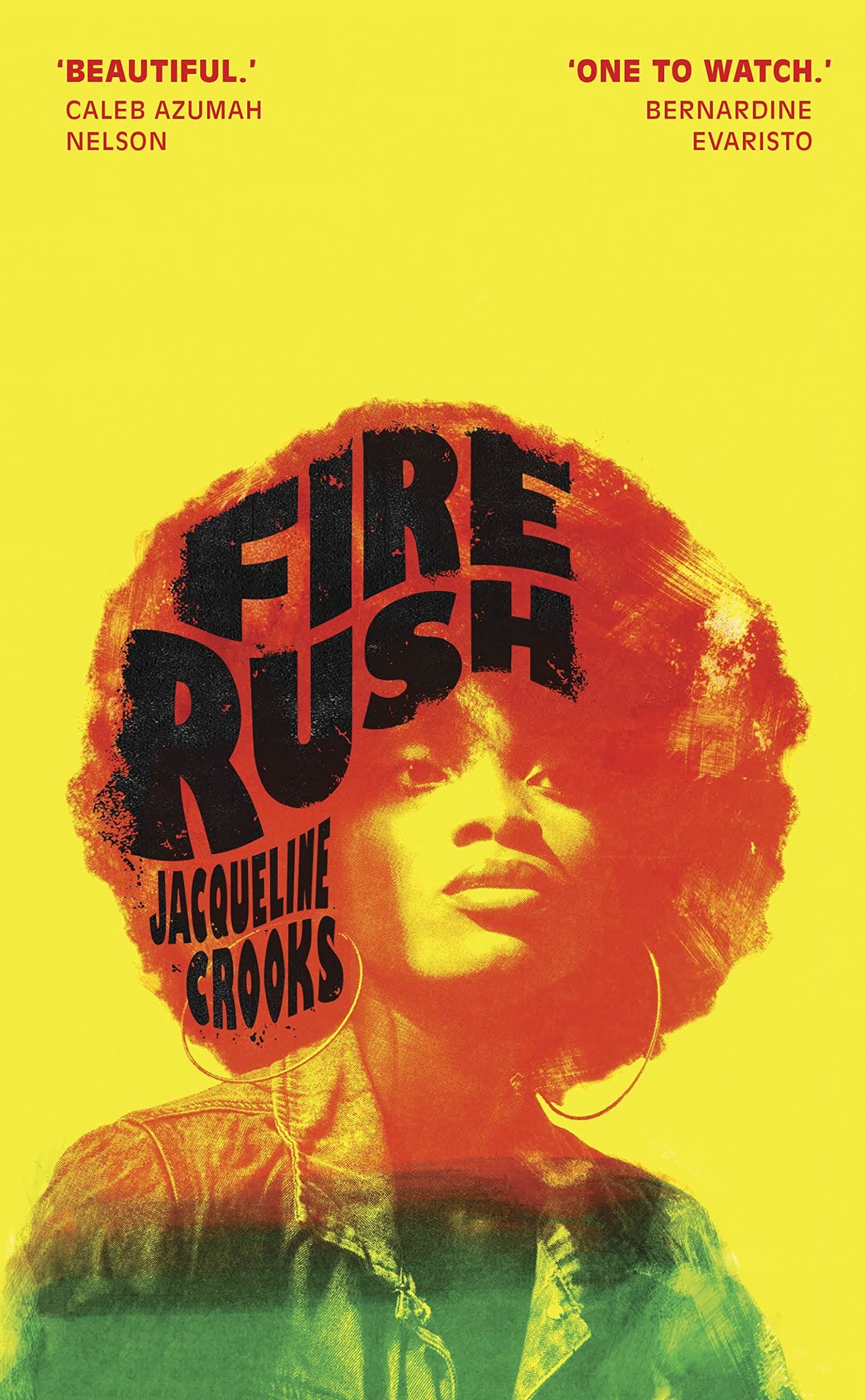It feels like some debut novels have been building up in an author's mind for their entire life. This is certainly the case with “Fire Rush”. In the bio for Jacqueline Crooks on the dust jacket it describes how she was involved in the music and political scene of migrant communities in 70s and 80s London and that she was “immersed in the gang underworld as a young woman.” This novel follows Yamaye through this same period of time. She spends her nights clubbing with friends at a venue which caters for the emerging dub music scene. But when a promising relationship is cut short because of a racist attack by the police, she's thrust into a movement of protest and criminality which eventually leads her to Bristol and Jamaica. At one point she muses “I wonder if one day I'll write a song, a sound memorial for the times we had. Those winter nights of music and heat, Asase, Rumer, Moose and me.” This innovative novel is that memorial because although it's fiction it is rich with the feeling of perilous young adulthood and prose which are infused with the music of British African-Caribbean culture. Reading it is a mesmerising, revelatory and utterly immersive experience.
What's immediately striking about this book is the voice of Yamaye which strongly captures her perspective as a creative young black woman in London. Both her narrative and the dialogue build a powerful sense of her personality and worldview. She resides in a housing estate with her emotionally-distant father, works a tedious job and longs for a connection with her absent mother. What gives her life is going to a club with her friends and chanting lyrics in her head which eventually burst out in public improv sessions when she takes to the mic. Although she finds inspiration and support from this community there's also an element of animosity. It's striking how she frames the slender options available to her when unwanted men grind against her in the club or when the police come knocking on her door. Also, her strong-willed close friend Asase is an ally but she also belittles Yamaye. On top of this is the larger threat of “Babylon” or the British establishment with police who target and spy upon both her and her community. It's inspiring witnessing Yamaye's growth over the course of the dramatic story. Although she experiences tragedy, heartbreak and violence she channels this into artistic expression. She also courageously fights to establish a space where she can feel at home.
There's a mural of black protest near to where I live in south London and its message really came alive for me when reading a section of this novel which features a march through Norwood that turns into a riot. These scenes are filled with evocative physical details and convey the emotional atmosphere of this confrontation in the streets. A visceral pain and anger for the way minorities have been systematically discriminated against and marginalized in this country is powerfully expressed throughout the story. Yamaye is deeply aware of the way her ancestors were subjugated on a day to day basis from the sugar she consumes to the nightmares that plague her. The story also meaningfully deals with the complexity of how to move forward as a society with options that range from complicity to flight to extremism. By following Yamaye's heartrending journey we experience the personal impact and difficulty of these larger events and debates.
The ongoing story lines of who might be snitching to the police in their local community and what happened to Yamaye's mother add compelling elements of mystery to the novel. Although I was fully engaged by this book, there were some elements of the plot that felt a little clunky to me. Circumstances surrounding a friend's incarceration are handled a little too swiftly, some encounters rely too heavily on coincidence and the ending came across as melodramatic. Also some of the short dream sequences dealt a bit too literally with the novel's central subjects. But these are minor quibbles considering the overall vibrancy of the utterly unique prose. It's a moving experience following the way Yamaye grows and transforms over the novel. This story may be set in the past but there is an urgency to Crooks' writing which successfully pays tribute to a movement and music scene which isn't part of mainstream history but whose influence is still strongly felt today.









